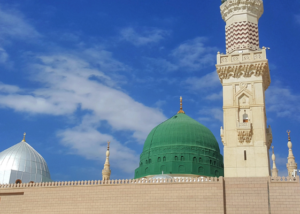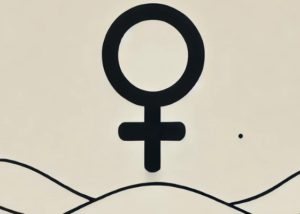Did some classical scholars disagree with the Mawlid?
Quran
Hadith
Islamic Text
It is true to say that some classical scholars did seem to disagree with the Mawlid. However, upon examination of the texts, it seems they disagreed with certain incorrect practices rather than the Mawlid itself.
وَسُئِلَ عَنْ صَوْمِ يَوْمِ الِاثْنَيْنِ؟ قَالَ: ذَاكَ يَوْمٌ وُلِدْتُ فِيهِ، وَيَوْمٌ بُعِثْتُ – أَوْ أُنْزِلَ عَلَيَّ فِيهِ
Abu Qatadah (May Allah Most High be pleased with him) reported that the Messenger of Allah ﷺ was asked about fasting on Mondays. He ﷺ said, “That is the day on which I was born and the day on which I received revelation.” (Sahih Muslim, 1162 – 197).
Most people who oppose the Mawlid of the Holy Prophet ﷺ tend to do so without referring to classical scholars and their opinions. Usually this is a sign of weakness in one’s argument or position. If one’s analysis of Quran and Hadith is correct, then it is almost inevitable that some earlier scholars would share the same view. Obviously, this criticism does not apply to contemporary issues. However, issues that have existed in the Ummah for centuries really should have precedent to support your claim. Otherwise, it is likely that your analysis of Quran and Hadith and subsequent conclusion is erroneous.
When looking at the views of classical scholars on this issue it is clear that they generally approved (see link below). Although it is correct to say that some classical scholars spoke against the Mawlid celebration and seemed to disagree with the Mawlid, for example Imam Ibn al-Haaj. However, when one reviews the texts of such scholars, it is clear to see that they did not object to the Mawlid itself, but rather to certain practices introduced by ignorant people.
وَمِنْ جُمْلَةِ مَا أَحْدَثُوهُ مِنْ الْبِدَعِ مَعَ اعْتِقَادِهِمْ أَنَّ ذَلِكَ مِنْ أَكْبَرِ الْعِبَادَاتِ وَإِظْهَارِ الشَّعَائِرِ مَا يَفْعَلُونَهُ فِي شَهْرِ رَبِيعٍ الْأَوَّلِ مِنْ مَوْلِدٍ وَقَدْ احْتَوَى عَلَى بِدَعٍ وَمُحَرَّمَاتٍ جُمْلَةٍ. فَمِنْ ذَلِكَ اسْتِعْمَالُهُمْ الْمَغَانِي وَمَعَهُمْ آلَاتُ الطَّرَبِ
From among the innovations that people have introduced, believing that thereby they are engaging in amongst the greatest acts of worship, and making apparent something sacred, is what they do in the month of Rabi’ al-Awwal, celebrating the Mawlid. Indeed it includes numerous innovations and unlawful things. Among them is the participants singing while at the same time using musical instruments. (Imam Ibn al-Haaj, al-Madkhal).
In the above Nass (text), we see that that Imam Ibn al-Haaj is speaking out against practices at Mawlid celebrations. Some have taken this to mean that he was opposed to the concept of Mawlid itself, however the Nass (text) below clarifies that this was not the case.
فَكَانَ يَجِبُ أَنْ يُزَادَ فِيهِ مِنْ الْعِبَادَاتِ وَالْخَيْرِ شُكْرًا لِلْمَوْلَى سُبْحَانَهُ وَتَعَالَى عَلَى مَا أَوْلَانَا مِنْ هَذِهِ النِّعَمِ الْعَظِيمَةِ وَإِنْ كَانَ النَّبِيُّ – صَلَّى اللَّهُ عَلَيْهِ وَسَلَّمَ – لَمْ يَزِدْ فِيهِ عَلَى غَيْرِهِ مِنْ الشُّهُورِ شَيْئًا مِنْ الْعِبَادَاتِ وَمَا ذَاكَ إلَّا لِرَحْمَتِهِ – صَلَّى اللَّهُ عَلَيْهِ وَسَلَّمَ – بِأُمَّتِهِ وَرِفْقِهِ بِهِمْ لِأَنَّهُ – عَلَيْهِ الصَّلَاةُ وَالسَّلَامُ – كَانَ يَتْرُكُ الْعَمَلَ خَشْيَةَ أَنْ يُفْرَضَ عَلَى أُمَّتِهِ رَحْمَةً مِنْهُ بِهِمْ كَمَا وَصَفَهُ الْمَوْلَى سُبْحَانَهُ وَتَعَالَى فِي كِتَابِهِ حَيْثُ قَالَ {بِالْمُؤْمِنِينَ رَءُوفٌ رَحِيمٌ} [التوبة: 128] (المدخل لابن الحاج)
Therefore, it is necessary to increase worship and good deeds in it (the month of Rabi al-Awwal) to express gratitude to the Master (Most High) due to what He (Most High) has bestowed upon us of this great blessing. Even though the Prophet ﷺ did not engage in more worship in this month as compared with other months, but that was due to his ﷺ mercy and gentleness to his Ummah. He ﷺ would (sometimes) leave an action, lest it should become compulsory on his ﷺ Ummah, as a mercy to them. As the Master (Most High) has said in His book: Gentle and Merciful to the believers. (Surah al-Towbah, 128). (Imam Ibn al-Haaj, al-Madkhal).
Thus it is clear that Imam Ibn al-Haaj did not disagree with the Mawlid itself. Rather he spoke out against particular practices that were prevalent.
And Allah (Most High) Knows Best.
– Answered by Shaykh Noorud-deen Rashid (03.10.2021)
See also:
Is celebrating the Mawlid permitted?
See also (video):






